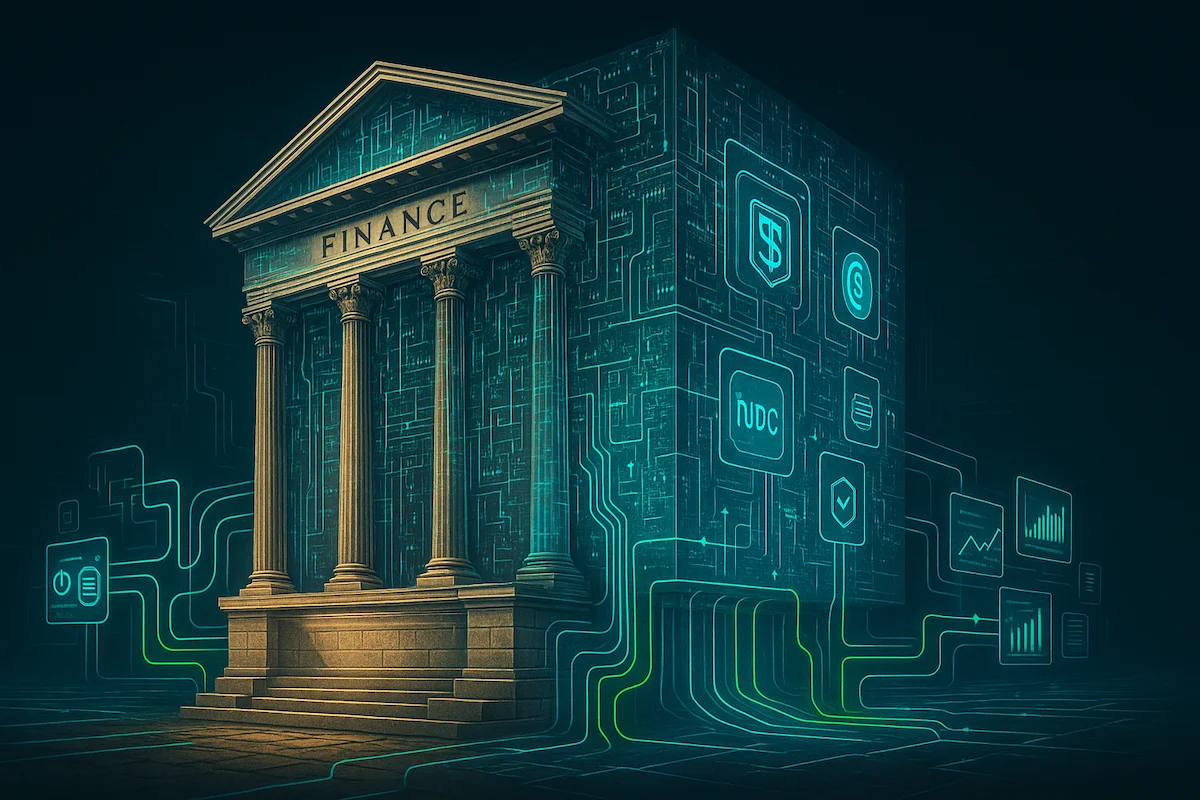
Tokenization will be “the next generation for markets,” according to BlackRock CEO Larry Fink. Tokenization is the process of representing something of value (an asset) as a digital token and offering that token for sale on a blockchain network. After its purchase, the digital token serves as proof of an ownership share in the underlying asset.
The financial services industry has recently seen increased interest and investment in tokenized assets. Many investors see tokenization as a vehicle enabling further adoption of blockchain technology. In fact, many experts believe that tokenization will revolutionize traditional asset classes such as stocks, bonds, fine art, and real estate by allowing fractionalized investment on blockchain networks.
Benefits of Tokenized Real Estate
Real estate tokens are more than just another way to invest in real estate. Buyers and sellers enjoy several advantages over traditional real estate investing methods by tokenizing physical property. The primary benefits of real estate tokenization are:
- Opportunity for fractional ownership
- Increased liquidity
- Greater transactional efficiency
- Superior diversification opportunities
- Access to additional capital
- Increased security
Opportunity For Fractional Ownership
Digital real estate tokens provide many benefits for investors, including the opportunity to purchase fractional ownership shares. By fractionalizing ownership interests, digital real estate tokens lower the upfront costs associated with real estate investing. As a result, one of the most significant barriers to entry is removed, allowing many prospective real estate investors to enter the market for the first time.
Increased Liquidity
Although many investors consider real estate assets suitable investments, they have suffered from a lack of liquidity in the past. Historically speaking, ownership interests in real estate changed hands infrequently and often required a sizable investment. By tokenizing these assets, ownership interests can be traded efficiently on a crypto exchange and purchased in smaller increments for a fraction of the cost.
Although the real estate token market has yet to achieve its full potential, lower upfront costs and a more efficient trading platform should contribute to a broader investor base and increased liquidity. Simply put, lower costs to own real estate creates more investors, and more investors results in greater liquidity.
Greater Transactional Efficiency
Traditionally, selling real estate involves several intermediaries, an immense amount of paperwork, and more than a few bureaucratic hurdles. On the other hand, the sale of real estate via digital tokens often curtails many of these inefficiencies. The smart contracts that underpin real estate token transactions often contain all of the terms and conditions associated with the transfer of ownership. And smart contracts are typically self-executing, meaning that the buyer does not need agents or lawyers to complete the transaction. As a result, real estate tokens often limit the number of intermediaries, paperwork, and red tape that so often slows down the process and increases the cost of traditional real estate transactions.
The result is a more efficient and cost-effective real estate market.
Superior Diversification Opportunities
The price of owning real estate can be significant. Real estate has traditionally only been sold in whole parts. As a result, investors had to pool their resources and commit to a small number of assets. The majority of real estate investors own just a single piece of real estate - their family home.
Fractional ownership changes the traditional real estate investment paradigm. With the help of real estate tokens, investors can now own smaller portions of many assets. Not only does this result in greater diversification for the investor, but it also lowers their risk exposure.
Access to Additional Capital
Fractionalization offers benefits to sellers of real estate tokens as well as buyers. For example, developers can sell ownership shares in their property via real estate tokens at any stage of the building process. They can choose whether to sell a portion of their ownership interest or the entirety of it. By doing so, developers can quickly raise capital before the completion of the project. As such, digital tokens provide developers with financial flexibility that the traditional real estate market simply can’t match.
Increased Security
Real estate tokens provide some security benefits unavailable to traditional real estate investors. As mentioned above, real estate tokens are stored on a blockchain exchange and, therefore, benefit from the network's security. Blockchain technology is extremely difficult to alter, hack, or cheat because it uses smart contracts that permanently record transactions. Smart contracts typically contain all of the terms and conditions of the real estate transaction and are visible to everyone.
Examples Of Companies Working On Tokenization Of Real Estate
Although real estate tokens are a relatively new development in the real estate industry, several companies have already created effective real estate token trading platforms. The following sites may be a good place to start if you or your organization is interested in investing in real estate tokens.
Propy
Propy, a pioneering prop-tech company, is revolutionizing the real estate industry by leveraging blockchain technology to facilitate seamless online transactions. Its unique platform enables buyers and sellers to close real estate transactions online, with title deeds recorded on the company's blockchain-supported platform. Propy made headlines when it successfully tokenized and sold an apartment as a non-fungible token (NFT), illustrating the potential for real estate properties to be effectively turned into NFTs. This venture was first launched in Ukraine and has since been extended to the U.S., providing a novel framework for purchasing real estate using blockchain technology. Propy's plan is to scale this globally, aiming to turn real estate properties into decentralized finance (DeFi) assets that can be borrowed against.

RealT
As a protocol specializing in fractional real estate and lending, RealT is intricately built upon the AAVE platform. Its remote monitoring and management (RMM) platform extends overcollateralized, crypto-backed loans denominated in WETH, WBTC, and stablecoins.The platform distributes Armm tokens on a one-to-one ratio, facilitating users to gauge the value of their deposit and determine loan repayment schedules. Upon depositing RealTokens on the RMM, users can immediately borrow against these asset-backed tokens, with the Loan-to-Value Ratio (LTV) pre-determined. Loan repayments can be made either through the stored value of RealTokens or through income streams. Lenders start earning interest as soon as the loan is issued. RealT is currently available in multiple non-US jurisdictions and is available to accredited US investors.

Milo
Milo is a financial technology company that provides mortgages and personal loans for foreign nationals, crypto investors, and U.S. consumers that deserve a better solution. They've designed the world's first crypto mortgage offering, which allows crypto investors to use their digital assets to purchase real estate in the U.S. With this solution, Milo's clients can pledge their Bitcoin to qualify for a low-interest rate, 30-year crypto mortgage, enabling them to diversify into real estate without needing to liquidate their digital assets. This service enables clients to finance 100% of their purchase with no down payment required in dollars and is designed to be faster than a conventional mortgage. By merging real estate security with digital assets' fluidity, Milo bridges both the crypto and real world.

Bitwave
Regardless of where you decide to purchase real estate tokens, you will need a DeFi accounting and tax solution to keep track of your investments. Bitwave is the trusted source for the world’s most sophisticated DeFI accounting and tax teams. We are headquartered in San Francisco and began working in the DeFi space at the dawn of the financial revolution. Bitwave is the first software platform built specifically for businesses to bring digital assets onto their balance sheet and into their business processes.
Before You Buy Tokenized Real Estate
Before investing in tokenized real estate, you can take several steps that will help give you the best chance of mitigating risk. First, research is critical. Although you are purchasing a token, it is essential to remember that, ultimately, you are buying an ownership share in a specific piece of property. As a result, it is vital that you thoroughly investigate the property before investing. Second, ensure that the platform you purchase the token on is legitimate. And finally, make sure to consider all of the opportunities and risks associated with the investment.
The Future Looks Bright For Real Estate Tokens
Tokenized real estate represents an exciting new way to invest in real estate. Digital real estate tokens are superior in many respects compared to traditional real estate investing, and tokenization provides improved liquidity, efficiency, and security. With any luck, real estate tokens will be the default method of real estate investing in the coming years.


Disclaimer: The information provided in this blog post is for general informational purposes only and should not be construed as tax, accounting, or financial advice. The content is not intended to address the specific needs of any individual or organization, and readers are encouraged to consult with a qualified tax, accounting, or financial professional before making any decisions based on the information provided. The author and the publisher of this blog post disclaim any liability, loss, or risk incurred as a consequence, directly or indirectly, of the use or application of any of the contents herein.







